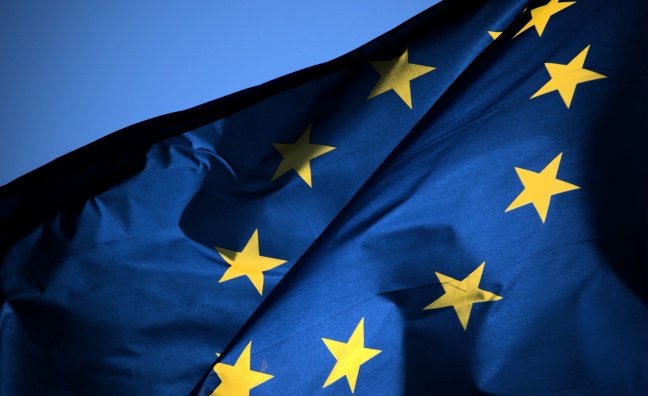Brexit is now a reality and the music industry is still facing uncertainty.
While the transition deal following the UK’s January 31 exit from the EU largely preserves the status quo, touring musicians and their teams are awaiting a decision on their status after 2020. Under the government’s timetable, a trade deal with the European Union has to be in place by December 31.
In the latest issue of Music Week, we report on how artists and musicians are avoiding touring commitments in Europe from 2021, because of the threat of visa costs and bureaucracy, as well as the imposition of carnets for equipment crossing the channel.
But there is a solution – an EU-wide Musicians’ Passport that would last a minimum of two years, cover all EU member stats and replace the need for carnets and other permits.
The Musicians’ Union has led the campaign for the Musicians’ Passport, which has widespread support. General secretary Horace Trubridge told Music Week how the potential imposition of visas beyond 2020 for touring Europe would affect his members.
“It's a massive issue,” he said. “We've been talking to the DCMS and to the Home Office about a renewable performer visa, which would enable you to travel around Europe freely to work. And also, of course, take your equipment because there are two issues here – it’s not just the services, it’s goods as well.
“The DCMS have always been very sympathetic. But they're not getting much back from the Home Office on how that might work. So this year is going to be critical during the transitional period, especially if Boris gets his way and we're forced to leave [the current trade arrangements] at the end of the year, whether we have a deal or not. We've got to get something in place.”
Trubridge confirmed that MU members are holding off on touring commitments in Europe next year until there is clarity. It follows comments by Solo Agency MD John Giddings, who revealed that some of his artists were opting not to confirm tours routed from the UK through Europe.
“A lot of our members have told us they have suspended all their European work beyond this year, because there's so much uncertainty,” said Trubridge. “I was in touring bands in the ’70s and I remember the nightmare of carnets. There were road crew scrabbling around under the stage picking up bits of drumsticks, in order to stick them back together again, so that when they went over the border they could show that we haven't sold any drumsticks in a particular country. It's hideous. So it is about moving people around Europe easily, but it's also about moving equipment and merchandise, and we've got absolutely no certainty on it at the moment.”
The government has to protect our industry
Horace Trubridge
Geoff Taylor, chief executive, BPI & BRIT Awards, outlined the main issues for label members.
“The priority issue that must be resolved in trade negotiations with the EU before the end of 2020 is to ensure our artists are able to travel to Europe to promote their releases without visa restrictions or burdensome administrative formalities,” he said.
“Second, we would like to see a deal on trade in goods that allows physical product to cross borders with as little friction as possible. In the longer term, we must seize on the opportunity to ensure that strong copyright protection is locked into all future trade deals, so that label investment in new markets can be productive.”
Trubridge said it was a “terrible shame” that the government will not implement the Copyright Directive, which it is no longer obliged to do as result of Brexit.
“These issues are not going to go away because we leave Europe and we're not having to implement the Directive,” he said. “The issues will still be there and we want to see something done about it by the government. Our friends in the Labour Party and in the Conservative Party are aware of that, and they know that we will be banging on the door along with the record labels on the value gap issue.”
IMPALA has reiterated its commitment to continuing to support UK indies. AIM CEO Paul Pacifico voiced concern that independents could be hardest hit from any increase in regulations.
“Bigger businesses can adapt much more easily,” he said. “We've got to be sure the government supports the talent pipeline and the innovators in the music market.”
Taylor also highlighted the need for support for exports after Brexit.
“The Music Export Growth Scheme, which DIT fund through their GREAT campaign, and which BPI manages, has proved a great success over the past six years – producing a 12 to 1 return on investment,” he said. “The largely indie labels, companies and artists that have been so well served by it would certainly welcome a renewed commitment from government given the vital importance of exports and promoting British music around the world.”
Ask if the Musicians’ Union had any message for the members and government on Brexit day, Trubridge joked: “I want to say to the members, wear black on Brexit day!”
“The government has got to protect our industry,” he added. “And they've got to take steps to make sure that we can work freely around Europe.”
To read the full report on Brexit pick up the latest issue – or subscribers can click here.
To subscribe and never miss a big industry story, click here.












